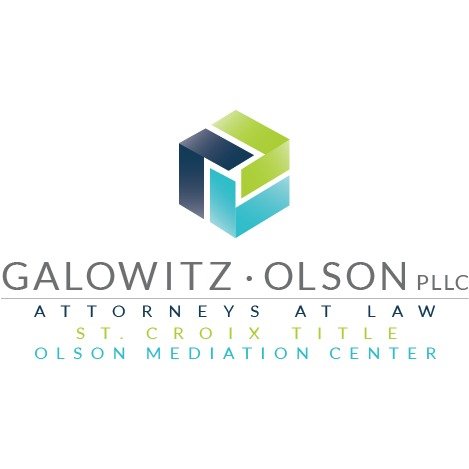Best Real Estate Lawyers in Minnesota
Share your needs with us, get contacted by law firms.
Free. Takes 2 min.
Free Guide to Hiring a Real Estate Lawyer
Or refine your search by selecting a city:
List of the best lawyers in Minnesota, United States
United States Real Estate Legal Questions answered by Lawyers
Browse our 2 legal questions about Real Estate in United States and read the lawyer answers, or ask your own questions for free.
- What is owner of condo units obligation as far as damage to the condo below their unit.
- The unit above my condo is managed by a Property Management company, and it was rented. During the time it was rented, there were water leaks that damaged my ceilings, and the Management Company. refuses to fix the ceiling so that it matches the rest of the ceiling. Even though... Read more →
-
Lawyer answer by Horus Legal Sulotion
Thank you for sharing the details of your situation. Based on the circumstances you described, you may have grounds to escalate the matter legally. You can file a case to request the appointment of a government engineer from Dubai Municipality...
Read full answer - What's the fee for reviewing a Home purchase contract.
- How much is your fee for looking over a contract on the house I am about to purchase.
-
Lawyer answer by US Legal Group 美国法律集团律师事务所
Hi. Thank you for reaching out to us regarding your upcoming property purchase. As a combined China & U.S. law firm, we specialize in real estate transactions and are well-equipped to review your contract.To provide you with a precise quote,...
Read full answer
United States Real Estate Legal Articles
Browse our 4 legal articles about Real Estate in United States written by expert lawyers.
- NY Lease Audits 2026: Mixed-Use Liabilities
- Commercial real estate in the United States is governed mainly by state law, but federal rules on discrimination, financing, and taxation still shape how you invest, lease, and manage property. For mixed-use buildings in New York City, new "Good Cause Eviction" style protections for certain residential tenants can cap rent... Read more →
- NYC Local Law 97 Fines: Defend Owners 2026
- Starting in 2026, New York City will begin collecting Local Law 97 emissions fines for buildings that exceeded their 2024 limits, at $268 per metric ton of CO2-equivalent over the cap. Owners can significantly reduce or defer penalties by documenting "Good Faith Efforts," including signed retrofit contracts, permits, financing commitments,... Read more →
- Squatters Rights in Texas 2026:How New Laws Expedite Removal
- Real estate law in the United States is mostly state based, but key federal laws like the Fair Housing Act and RESPA still shape every sale, lease, and loan. Title, deeds, and recording with the county clerk or recorder are what legally prove who owns a property and who has... Read more →
About Real Estate Law in Minnesota, United States
Real estate law in Minnesota refers to the body of statutes and regulations that govern the purchase, sale, leasing, and use of land and buildings throughout the state. This branch of law covers both residential and commercial properties. Whether you are a homeowner, a landlord, a tenant, a developer, or an investor, real estate law comes into play during real property transactions, title transfers, financing arrangements, boundary disputes, land use, and zoning matters. Minnesota real estate law blends federal, state, and local rules, requiring keen attention to detail to protect your rights and ensure legal compliance.
Why You May Need a Lawyer
There are many situations in which having a Minnesota real estate lawyer is important for protecting your interests or resolving disputes. Here are some of the most common scenarios:
- Buying or selling a home or commercial property, including reviewing or negotiating purchase agreements
- Dealing with complex title issues, encumbrances, or title insurance claims
- Resolving boundary line or easement disputes with neighbors
- Addressing landlord-tenant issues such as eviction, rental agreements, or habitability claims
- Navigating foreclosure proceedings or short sales
- Completing property transfers in cases of divorce, inheritance, or gifting
- Handling zoning, land use, or permitting problems with city or county authorities
- Disputes related to homeowners’ associations or condo boards
- Negotiating or drafting commercial leases for businesses
- Assisting with environmental compliance and due diligence for real estate transactions
Minnesota real estate attorneys can help by clarifying your rights, drafting or reviewing legal documents, negotiating on your behalf, and representing you in court if necessary.
Local Laws Overview
Minnesota's real estate laws are shaped by state statutes, case law, and local ordinances. Below are several key aspects:
- Disclosure Requirements: Sellers in Minnesota must disclose all material facts about a property's condition that could affect the buyer's decision. The Minnesota Seller’s Property Disclosure Statement is commonly used to fulfill this requirement.
- Homestead Laws: Minnesota offers strong homestead protections for primary residences, including property tax benefits and protection from some types of creditors.
- Foreclosure Process: Most foreclosures in Minnesota are non-judicial, following statutory notice and sale procedures. Borrowers have a redemption period post-sale during which they can reclaim the property by paying the outstanding debt.
- Landlord-Tenant Law: Minnesota regulates security deposits, eviction processes, and tenant rights. There are strict rules on notice periods for termination and nonpayment of rent.
- Property Taxes: Counties assess property values annually, and property owners can challenge assessments through local boards of appeal.
- Zoning and Land Use: Each city and county enforces zoning codes governing how land may be used. Permits are necessary for new construction, additions, or significant alterations.
- Easements and Boundaries: Disputes over property lines or rights-of-way are common and often require survey evidence and legal interpretation of deeds.
- Real Estate Licensing: Real estate brokers and agents must be licensed by the Minnesota Department of Commerce and follow strict regulatory guidelines.
Frequently Asked Questions
What are the basic requirements for buying a home in Minnesota?
To buy a home in Minnesota, you typically need a purchase agreement, financing (unless paying cash), title search, property inspection, and to attend a closing. Minnesota does not require an attorney at closing but legal advice is recommended for complex transactions.
Do sellers need to disclose property defects in Minnesota?
Yes, sellers must disclose all material facts about the property, including known issues with structure, systems, water intrusion, and environmental hazards. Failing to disclose can lead to legal liability.
How is property ownership transferred?
Ownership is transferred through a deed, such as a warranty deed or quitclaim deed, which must be properly executed and recorded with the county recorder’s office.
How does the foreclosure process work in Minnesota?
Most foreclosures are non-judicial and involve public notice, a sheriff’s sale, and a redemption period (often six months). Foreclosure timelines and rights vary by circumstance.
What are a landlord’s responsibilities in Minnesota?
Landlords must ensure rental properties are fit for habitation, comply with housing codes, make necessary repairs, and follow legal eviction procedures. Security deposits must be returned within 21 days of lease termination unless deductions are justified.
How can I resolve a boundary dispute?
Start with a professional land survey. If disputes persist, mediation or legal action may be necessary. An attorney can help interpret deeds, surveys, and local laws.
Are real estate agents required to be licensed?
Yes, all real estate brokers and agents must be licensed by the Minnesota Department of Commerce. They must adhere to requirements regarding continuing education, disclosure, and ethical practices.
What should I know about homeowners’ associations?
Homeowners’ associations (HOAs) in Minnesota have rules (covenants, conditions, and restrictions) you must follow. HOAs have the power to levy fees and enforce compliance through fines or legal action.
Can I back out of a purchase agreement?
It depends on the terms of the agreement and whether contingencies (such as financing or inspection) have not been met. Consulting a lawyer before withdrawing can help avoid breach of contract claims.
Where do I turn if I cannot resolve a real estate dispute?
Many disputes are resolved through negotiation, mediation, or arbitration. If these fail, litigation in Minnesota state courts may be necessary. Legal counsel is important for assessing your options.
Additional Resources
For more information or assistance in Minnesota, consider these resources:
- Minnesota Department of Commerce - Regulates real estate brokers and agents
- Minnesota Bar Association - Provides lawyer referrals and legal information
- Minnesota State Law Library - Offers legal research support and access to statutes
- County Recorder’s Office - For property records, deeds, and title searches
- Local city or county government offices - For zoning and land use information
- Legal aid organizations - Provide assistance to eligible low-income individuals with housing issues
Next Steps
If you need legal assistance with a real estate matter in Minnesota, start by gathering all relevant documents such as deeds, contracts, and correspondence. Identify the specific issues or questions you have. Contact a qualified Minnesota real estate attorney who can assess your situation, explain your rights, and help you take appropriate action. Many attorneys offer initial consultations, which can clarify your options. Promptly addressing legal concerns is crucial for protecting your interests, preventing costly mistakes, and achieving the best possible outcome.
Lawzana helps you find the best lawyers and law firms in Minnesota through a curated and pre-screened list of qualified legal professionals. Our platform offers rankings and detailed profiles of attorneys and law firms, allowing you to compare based on practice areas, including Real Estate, experience, and client feedback.
Each profile includes a description of the firm's areas of practice, client reviews, team members and partners, year of establishment, spoken languages, office locations, contact information, social media presence, and any published articles or resources. Most firms on our platform speak English and are experienced in both local and international legal matters.
Get a quote from top-rated law firms in Minnesota, United States — quickly, securely, and without unnecessary hassle.
Disclaimer:
The information provided on this page is for general informational purposes only and does not constitute legal advice. While we strive to ensure the accuracy and relevance of the content, legal information may change over time, and interpretations of the law can vary. You should always consult with a qualified legal professional for advice specific to your situation.
We disclaim all liability for actions taken or not taken based on the content of this page. If you believe any information is incorrect or outdated, please contact us, and we will review and update it where appropriate.
Browse real estate law firms by service in Minnesota, United States
Minnesota, United States Attorneys in related practice areas.
Browse real estate law firms by city in Minnesota
Refine your search by selecting a city.









